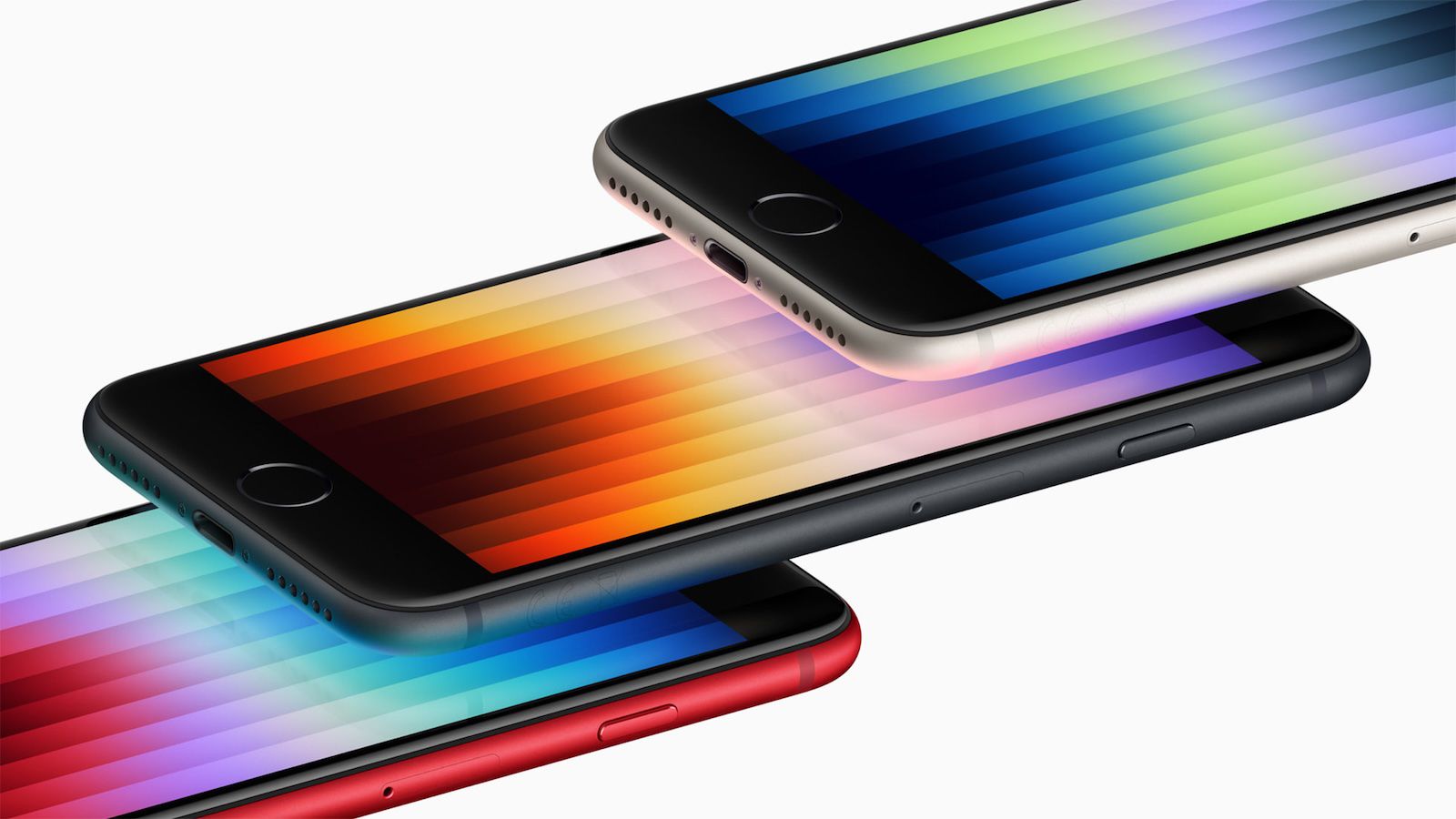Apple plans to stop selling the iPhone 14, iPhone 14 Plus, and third-generation iPhone SE in European Union countries later this month, to comply with a regulation that will soon require newly-sold smartphones with wired charging to be equipped with a USB-C port in those countries, according to French blog iGeneration. All three of these iPhone models are still equipped with a Lightning port for wired charging.
In a paywalled report today, the website said the iPhone models will no longer be sold through Apple’s online store and retail stores in the European Union as of December 28, which is when the regulation goes into force. Apple may begin phasing out the iPhones even earlier in Switzerland, which has a close relationship with the European Union market. There, the report states that the devices will be removed from Apple’s online store as of December 20.
Apple Authorized Resellers in the European Union will be able to continue selling these iPhones until their remaining inventory is depleted, the report added.
Apple plans to stop selling some other Lightning-based products in the European Union as well, including its extended Magic Keyboard without Touch ID, according to the report. That keyboard is still equipped with a Lightning port for charging.
There are 27 countries in the European Union, including Austria, Belgium, Bulgaria, Croatia, Cyprus, Czechia, Denmark, Estonia, Finland, France, Germany, Greece, Hungary, Ireland, Italy, Latvia, Lithuania, Luxembourg, Malta, Netherlands, Poland, Portugal, Romania, Slovakia, Slovenia, Spain, and Sweden. While the United Kingdom left the European Union in 2020, the report said Apple will stop selling the devices in Northern Ireland, which continues to follow many of the European Union’s trade laws.
As far as the source of this information, the report said Apple shared these details with its relevant internal teams. Apple did not respond to our requests for comment, but we will update this story if the company confirms or denies the report.
According to a guide published by the European Union in 2022, the USB-C port regulation will apply to any individual iPhone that is placed on the market after the regulation goes into force, even if they are models that launched beforehand, like the iPhone 14, iPhone 14 Plus, and the current iPhone SE. At a minimum, that means Apple would not be able to sell any iPhones with a Lightning port manufactured after December 28.
The relevant passage from the guide:
Even though a product model or type has been supplied before new Union harmonization legislation laying down new mandatory requirements entered into force, individual units of the same model or type, which are placed on the market after the new requirements have become applicable, must comply with these new requirements.
While the European Union has suggested that the regulation does not prevent existing stock from being sold, which explains why Apple Authorized Resellers would be able to sell through their remaining inventory, it is not entirely clear to us how the regulation applies to any iPhones that Apple may have already stockpiled in factories. In any case, the report said that Apple’s decision is to stop selling the devices soon.
Apple is expected to announce a fourth-generation iPhone SE with a USB-C port in March, so the device would quickly return to the European Union. Meanwhile, the iPhone 14 and iPhone 14 Plus likely would have been discontinued in September, so sales of those devices would be ending in the European Union around nine months early.








